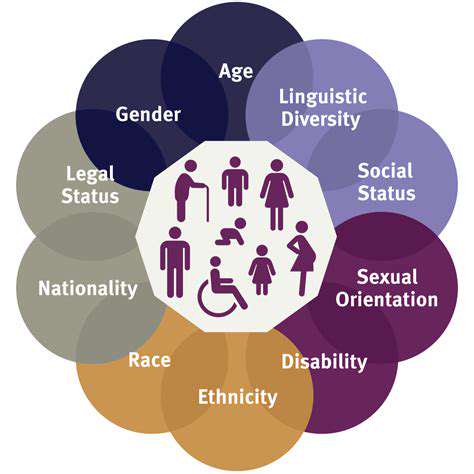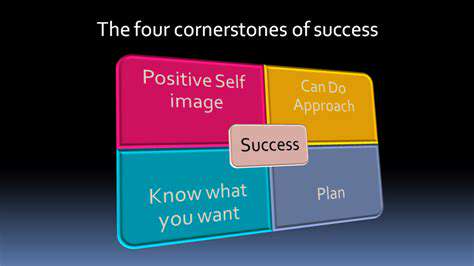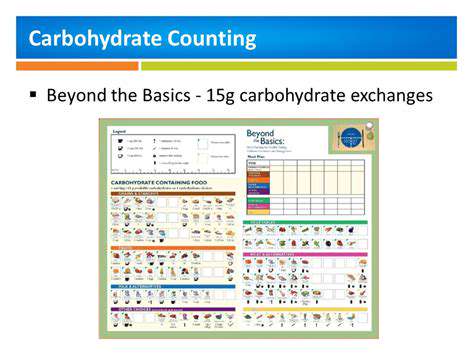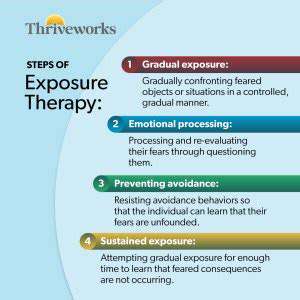The Importance of Diverse Human Interactions for Puppy Personality
The Foundation of a Happy and Adaptable Pup
Early Exposure and Socialization
A puppy's early life is crucial for developing a well-adjusted adult dog. Early exposure to various sights, sounds, people, and other animals is paramount for building confidence and adaptability. This socialization period, typically between 3 and 12 weeks of age, allows puppies to learn appropriate responses to different stimuli, preventing fear-based behaviors later on. Positive interactions with a variety of people, including children, and exposure to different environments, such as parks and busy streets (under controlled supervision), are essential for fostering a well-rounded and confident pup. This early exposure not only helps the puppy to develop positive associations with the world around them but also establishes crucial social skills.
Consistency in handling and interaction is key. Regular interaction with a range of people, including those of different ages and backgrounds, helps the puppy understand and accept that humans are generally friendly and trustworthy. This early socialization lays the foundation for a dog that is comfortable and confident in a variety of situations, crucial for a happy and adaptable companion, prepared for the challenges of a human household.
Building Lasting Bonds Through Interaction
Beyond early socialization, ongoing interaction with diverse individuals is vital for a puppy's ongoing development. This involves not just the puppy's interactions with various people but also the ways in which the human family members interact among themselves. Observe how your family members communicate and treat each other; this sets an example for the puppy. A happy and respectful home environment fosters a happy and well-adjusted pup.
Encouraging positive interactions with children, teenagers, adults, and even strangers builds a tolerant and well-adjusted pup. This doesn't mean throwing your puppy into every social situation imaginable. Instead, it means carefully planned and positive interactions that introduce the puppy to new experiences in a calm and controlled manner. This gradual exposure helps the puppy understand and learn appropriate social cues and responses, laying the foundation for a dog who can navigate different social situations with ease and confidence.
The more exposure to different people and situations the puppy has, the more adaptable and resilient they become. This, in turn, translates to a happier and more well-adjusted dog, capable of responding appropriately to various situations and maintaining positive relationships with all members of the family and community.
Active participation in dog parks, obedience classes, and other social gatherings can also greatly enhance a puppy's adaptability and social skills. These experiences, when managed appropriately, further expand the puppy's exposure to different individuals and dogs, promoting their ability to interact and navigate social situations with confidence.
Ultimately, consistent and positive interactions contribute significantly to a puppy's overall well-being, creating a dog who is not only happy but also adaptable and well-prepared for the many challenges and opportunities that life with humans presents.
The Impact of Different Ages and Genders

The Impact of Different Ages on Learning Styles
Learning styles vary significantly across different age groups, impacting how individuals absorb and process information. Young children, for example, often learn best through play and hands-on activities. Their brains are still developing, and they thrive on sensory experiences and active engagement. This contrasts sharply with older learners who may be more comfortable with theoretical concepts and abstract thinking. This difference in learning styles necessitates different pedagogical approaches to cater to the diverse needs of students at various stages of development.
As individuals age, their cognitive abilities and preferred learning methods evolve. Adults, for instance, often benefit from more structured learning environments that provide opportunities for problem-solving and critical thinking. They tend to be more motivated by practical applications and real-world scenarios. This shift reflects the increasing complexity of information and the need for deeper understanding in later stages of life.
The Role of Prior Knowledge in Learning
Prior knowledge plays a crucial role in shaping the learning experience at any age. Existing schemas and frameworks influence how new information is interpreted and integrated. Individuals with a strong foundation in a subject are often better equipped to absorb new concepts, while those with limited prior knowledge may struggle to connect new information to existing knowledge frameworks. This is particularly relevant when introducing complex subjects.
Effective learning strategies often involve building upon existing knowledge. Teachers and educators can leverage prior knowledge to personalize the learning experience and tailor instruction to meet the individual needs of students. This allows for a more meaningful and engaging learning process.
The Influence of Motivation and Engagement
Motivation and engagement are critical factors in the learning process across all ages. Students who are intrinsically motivated are more likely to be active learners and demonstrate a sustained interest in the subject matter. A lack of motivation can hinder the learning process, leading to disengagement and a decreased ability to retain information. Creating a supportive and stimulating learning environment that fosters curiosity and a sense of accomplishment is key to improving motivation.
Engaging activities and a variety of learning modalities can make learning more appealing. This can involve incorporating interactive elements, real-world applications, and collaborative learning opportunities. Students who are actively involved in their learning are more likely to retain information and develop a deeper understanding of the subject matter.
Impact of Environmental Factors on Learning
Environmental factors, such as the learning environment and social interactions, significantly influence the learning experience. A conducive learning environment, characterized by order, structure, and minimal distractions, can positively impact focus and concentration. Conversely, disruptive environments can hinder learning by promoting stress and anxiety. Providing a supportive and positive learning environment is crucial for all learners.
Social interactions and peer learning can also significantly impact learning outcomes. Collaboration, discussion, and constructive feedback can enhance understanding and promote a deeper engagement with the subject matter. Creating opportunities for students to interact with peers and build relationships within the learning environment is essential for fostering a supportive and enriching learning experience.
Cognitive Development and Learning Capacity
Cognitive development plays a significant role in shaping learning capacity. Different stages of cognitive development are associated with varying levels of reasoning, problem-solving, and memory capabilities. Understanding these developmental stages allows educators to tailor their teaching strategies to align with the cognitive abilities of students at different age levels. This ensures that the learning process is appropriate for the cognitive capacity of the learner.
Recognizing that cognitive development is a continuous process is essential for educators. By adapting teaching methods to match the evolving cognitive abilities of learners at various ages, educators can foster optimal learning outcomes and promote intellectual growth.
Building Confidence Through Positive Reinforcement

Cultivating a Growth Mindset
Developing a growth mindset is paramount to building confidence. This involves understanding that abilities and intelligence can be developed through dedication and hard work, rather than being fixed traits. Embracing challenges and viewing setbacks as opportunities for learning is crucial in this process. This shift in perspective allows you to approach new situations with a proactive and resilient attitude, which in turn fosters a stronger sense of self-efficacy.
Cultivating a growth mindset is not just about thinking positively; it's about actively seeking out challenges and learning from mistakes. It's about recognizing that intelligence and abilities are not static but rather fluid and capable of development. This mindset empowers you to view failures as stepping stones rather than insurmountable obstacles.
Identifying and Challenging Negative Self-Talk
Often, low self-esteem stems from negative self-talk. This inner critic can manifest in various ways, from harsh judgments to self-doubt. Recognizing and challenging these negative thought patterns is a fundamental step towards building confidence. It's essential to identify the specific negative thoughts and replace them with more positive and realistic affirmations.
Identifying and actively challenging negative self-talk is a crucial component of building confidence. This includes acknowledging the thoughts, understanding their origins, and consciously replacing them with more constructive and empowering statements. By actively working to reframe these negative thoughts, you can significantly improve your self-perception and boost your confidence levels.
Setting and Achieving Realistic Goals
Setting achievable goals provides a tangible sense of accomplishment and boosts confidence. Breaking down large tasks into smaller, more manageable steps can make the process less overwhelming and more motivating. Each successful step reinforces a sense of competence and progress.
Establishing realistic and measurable goals is key to fostering a sense of accomplishment and building confidence. By focusing on achievable targets, you build momentum and experience the satisfaction that comes from crossing items off your to-do list. This gradual progress toward your objectives creates a positive feedback loop, reinforcing your belief in your abilities.
Seeking Support and Encouragement
Building a supportive network of friends, family, or mentors can significantly impact your confidence levels. Having individuals who believe in you and offer encouragement can help you navigate challenges and maintain a positive outlook. Constructive feedback from trusted sources can help you identify areas for improvement and build a stronger sense of self-worth.
Surrounding yourself with a supportive network is vital for building and maintaining confidence. Having people who believe in you and offer encouragement is essential for navigating life's inevitable challenges. This support system provides a safe space for vulnerability and provides perspectives that can help you grow and develop confidence.
Celebrating Small Victories
Taking time to acknowledge and celebrate small victories, no matter how insignificant they may seem, is a powerful way to build confidence. This practice reinforces the positive association between effort and reward, fostering a sense of accomplishment and self-worth. It's crucial to recognize and appreciate the progress you make, no matter how gradual it may be.
Acknowledging and celebrating small victories is incredibly important for building confidence. These small accomplishments, when recognized and appreciated, reinforce a positive association between effort and achievement, leading to an increased sense of self-efficacy. This practice creates a cycle of positive reinforcement that strengthens self-belief and confidence.
Read more about The Importance of Diverse Human Interactions for Puppy Personality
Hot Recommendations
- The Impact of Early Socialization on a Dog's Interaction with Other Animals
- Car Travel and Puppy Socialization: Making the Journey a Positive Experience
- The Importance of Early Environmental Exposure for Puppy Development
- Taking Your Puppy to the Vet: Positive Socialization Strategies
- Making Training a Positive Experience for Your Puppy
- Public Transportation and Puppy Socialization: A Step by Step Guide
- Safe Socialization: Allowing Others to Pet Your Puppy
- Helping a Puppy Who Struggles with "Stay"
- Positive Puppy Interactions: Making Meetings with New Friends Fun
- No Treats Needed? Training Basic Commands with Verbal Praise











